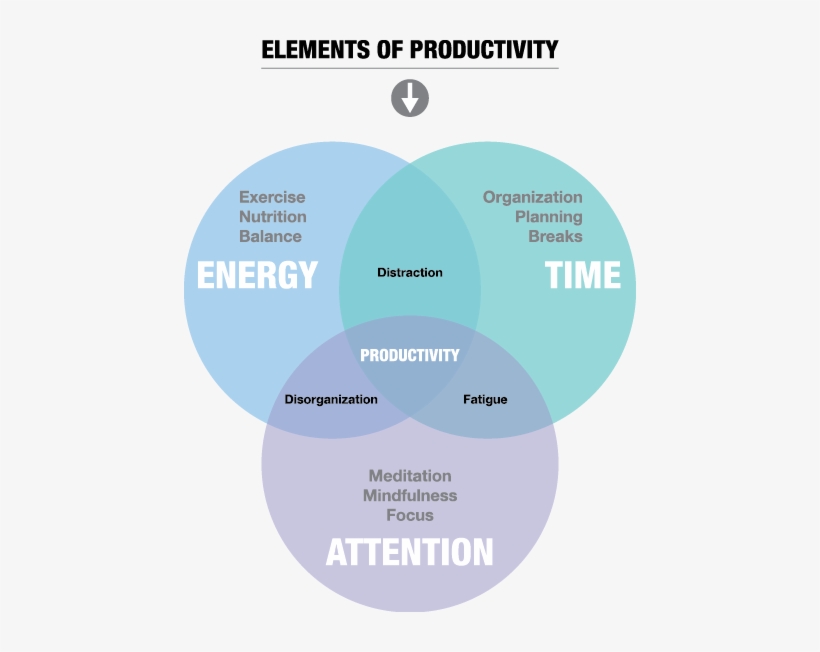We are a society obsessed with productivity. From managers in offices, to parents at home, everyone speaks about not wasting time, being more efficient, filling up every minute with something to do. Every appraisal contains a detailed discussion on KPIs (Key Performance Indicators) that try to measure how productive an employee was, and outlines steps for improvement if he/she falls below a certain threshold. We are all busy, and want to become busier…
And then COVID-19 comes along.
Now, everyone is at home, and companies are trying to find new methods to keep employees productive. From webinars, to virtual meetings (attended also by crying children and vacuum cleaners in the background), and in some cases, even seminars are being attempted on Zoom connections. I even saw Zoom invites for yoga classes. Being busy doesn’t seem to want to stop. Apparently.
So what is productivity? Is it the same as being busy? More importantly, am I happy with this way of working?
TIME, ATTENTION AND ENERGY
Chris Bailey is a noted author and productivity expert. His book – The Productivity Project – details some very interesting facets of productivity. While the book does contain a comprehensive look at the subject, if you had to take away just one learning from it – it would be the three words above. The three basic ingredients of productivity – time, attention and energy.

To quote Bailey – For example, getting enough sleep requires more time, but it boosts your energy and ability to manage your attention. Eliminating noise and distractions also takes time, but helps you manage your attention better because it provides you with more focus and clarity throughout the day. Changing your mindset takes energy and attention, but will let you get more done in less time.
To get tasks done, you have to devote these three ingredients in ample measure. You do have a fixed allowance of these ingredients each day and consequently, you have to choose the tasks to which you dedicate these resources.
Productivity has nothing to do with how much you do, and everything to do with how much you accomplish.
Being busy, without getting anything done at the end of it, is just plain waste of time, isn’t it? A good way to start the day (something that I use everyday) is asking yourself this question –
When the day is over, what three things will I want to have accomplished?
Just three things. J.D. Meier, author of Getting Results the Agile Way, says:
“the simplest reason [three accomplishments work so well] is because our brains are trained from early on to think in threes: the beginning, the middle, the end.”
So here is a good habit to develop when you wake up in the morning. Take a series of deep breaths, long inhalations followed by equally long exhalations, and then think of three things that you want accomplished during the day. Not just think, but visualise yourself completing these three tasks – and the reward that possibly follows. For example, yesterday, the three tasks that I wanted to complete were:
1. the making a short video on the 21-day sādhanā program
2. completing a business plan for a client (it was due by Thursday); and
3. commencing work on my prānāyāma series – by practising it for 20 minutes in the morning.
Small goals in themselves, but they were not isolated tasks – each one was a precursor to a larger series of tasks that would only kickstart once I completed these steps. So, starting these were very important.
And remember, you do work on other tasks too during the day – these three tasks that you select should be important enough for you to devote your time, attention and energy to complete and feel a sense of accomplishment at the end of the day.
So what about happiness?

कर्मण्येवाधिकारस्ते मा फलेषु कदाचन |
मा कर्मफलहेतुर्भूर्मा ते सङ्गोऽस्त्वकर्मणि ||
You have a right to perform your prescribed duties, but you are not entitled to the fruits of your actions. Never consider yourself to be the cause of the results of your activities, nor be attached to inaction.
A profound verse from Srimad Bhagavad Gita, with a meaning so deep that it is not possible to present an elaborate commentary on it within the limits of this discussion. I would borrow the words of Shri Eknath Eshwaran, prolific author and Indian-born spiritual teacher, who says:
All work develops in phases. If you look only at the immediate consequences instead of the goal, you are likely to get emotionally entangled and burn out or lose hope. You may even get so personally involved that you begin resorting to wrong means just to get things done the way you think they should be. In the long run, this can only weaken your work and turn results against you.
“Yoga,” the Gita counsels, “is evenness of mind.” When we are working for ourselves, we feel driven and burn out. When we are working for prestige and power, we get tense and even sick. Not being anxious about results means that when fortune smiles on you, when success comes, you don’t get excited; you just say thank you. Then, when fortune frowns and friends desert you and everything seems to fly in your face as is bound to happen—because that is the nature of life—you don’t get depressed or lose heart. Nothing can shake you; you are at your best whatever comes. That is living in freedom.
I leave you with that thought, and I have just finished my first task, among the three that I set out to accomplish this morning:)
And you?
